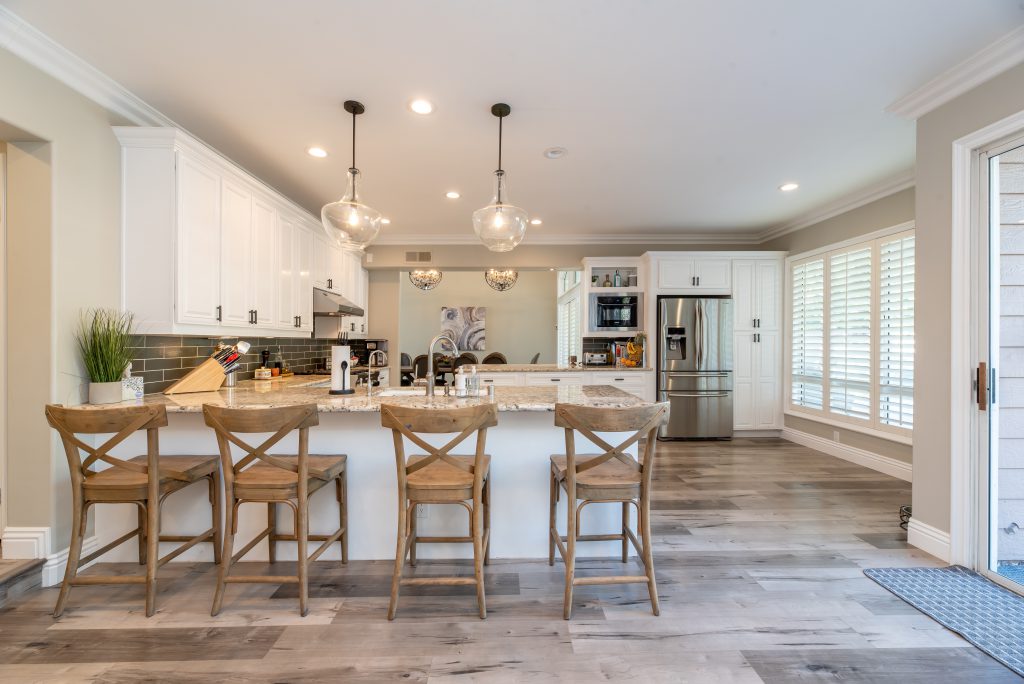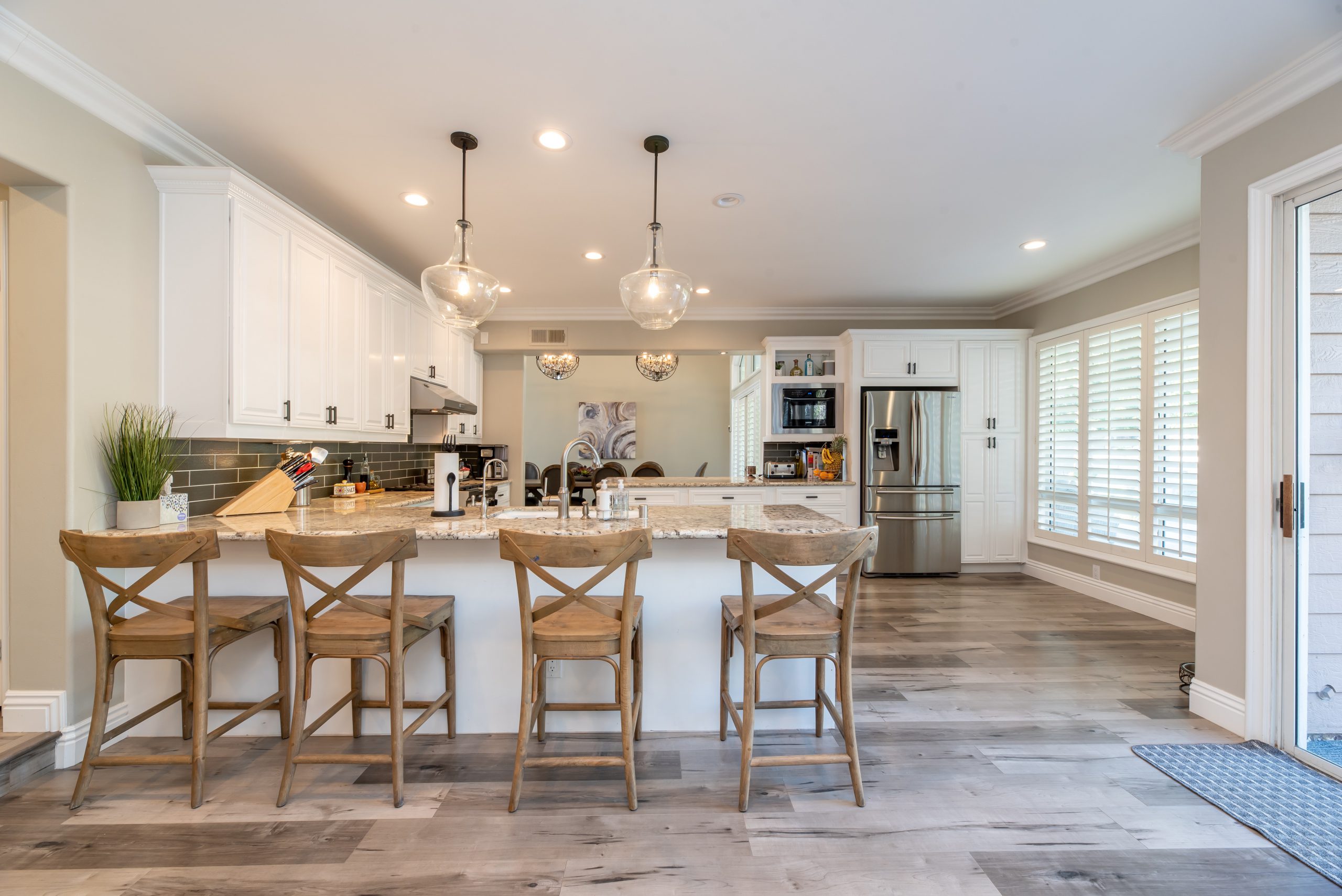Buying a home for the first time is a big step! The more you know about the process, the better you can manage your stress and make informed decisions about your purchase. We’ve outlined all you need to know about buying a home for the first time (or the second time, or the third time…). Use this information to help you navigate the process and to choose a home that suits your needs and budget.

Getting Started
Once you make the decision to hunt for your first home, you’ll want to think carefully about your needs as well as your lifestyle. Often, one’s local real estate market will be filled with diverse choices ranging from townhouses to multi-story homes. Your real estate agent will help you find a home that suits your needs, but it’s important to convey exactly what you want. Before beginning the search for a house, consider factors that will impact your decision such as:
- Home type (i.e. bungalow, ranch, townhouse, etc…)
- Square footage (home much interior and exterior space do you want?)
- Number of bedrooms needed
- Number of bathrooms needed
- Special features you want (i.e. finished basement or multi-car garage)
- Deal breakers (home features you don’t want such as septic system, location near railroad tracks, upper story, too close to neighbors, etc…)
You’re Shopping for a Community, Too!
Don’t forget that the location of your new house matters too. Often, first-time home buyers forget to carefully consider location. A community can have a big impact on life in your new home, enhancing or detracting from your enjoyment of your setting. If you have a family or medical needs, you want to include related considerations in your house hunt. Be sure to consider things such as:
- Work commute
- Presence of lack of public transportation
- Crime rate
- Proximity of hospitals and other medical facilities
- Shopping centers
- Schools (how are they rated?)
- Restaurants
- Other amenities (i.e. community center, fitness centers, public pool, golf course, etc…)
If you purchase a terrific house but your work commute cuts dramatically into your free time, it might not be the best option. Think carefully about other aspects of your life that are important to you before signing a contract to buy a first home.

Down Payment Considerations
When you buy a house, you’ll be expected to put money down. The amount of the down payment depends on the value of the house and what the lender expects. You may qualify for first-time home buyer advantage programs too that will help with your down payment. Many buyers are aware that lenders look for 20% down, but this isn’t always achievable for a first-time home buyer. Keep in mind that the average down payment is under 10%. Of course, the more you can put down, the better interest rate and deal you may be able to procure from a lender.
Get Pre-Approved for a Home Loan
Once you decide to buy a house, you may feel excited to get out into the marketplace to start searching. Before you do, however, you should speak with lenders about getting pre-approved for a mortgage. First and foremost, the pre-approval process allows you to find out exactly what lenders are willing to lend you. When you have a financial figure or range in mind, you can let your real estate agent know. Then, you can visit homes for sale that are in your range.
In order to get pre-approved, you’ll need to schedule an appointment with a potential lender. The general recommendation is to request approval from three lenders. You should have the required documentation on hand that lenders will need to evaluate your request. Banks will want to examine your:
- Current and past income
- Credit score
- Recent tax returns
- Bank statements
- Proof of financial assets
- Proposed down payment
After assessing your financial picture, the bank can generate a pre-approval package that includes the maximum dollar amount it’s willing to lend. Different lenders may offer a different amount. However, even though you get pre-approved from one lender doesn’t mean you have to stick with that particular one. Once you select a home, you may opt to investigate mortgage deals from other lenders.
Learn about Your Options
As you begin the pre-approval process, you’ll also want to take time to research the different loan options and first-time buyer programs available. You may qualify for home-buyer assistance, which can dramatically change the amount of money you’d be expected to put down on a home. When you go through the pre-approval process, you can determine if you qualify for a first-time buyer advantage program. Some of the most common first-time buyer assistance programs include:
- FHA Loan
- VA Loan
- Fannie Mae / Freddie Mac first-time buyer programs
- USDA Loan
- Energy-Efficient Mortgage
- Good Neighbor Next Door Program
- Local State or County assistance programs
These options are typically based on your income and whether or not you’ve ever purchased a house before. Most of these were designed specifically to help first-time buyers achieve their home purchase.
Working with a Real Estate Agent
It’s important to work with an experienced real estate agent. Once you have a location in mind, find an agent who knows that market backwards and forwards. You may also want to find out if your agent is comfortable looking for homes in your price range. This is important because as a first-time buyer, you’re going to need focused attention from an agent. You don’t want to work with a realtor who has ‘bigger fish to fry’ and may not devote the time and energy you can benefit from when hunting for a first home. Read references or ask your family and friends to give you a referral to an agent who is good with first-time buyers.
The House Hunt
When you begin your search, you can start online. Your real estate agent can line up properties for you to view, but it’s a good idea to scour the marketplace yourself. This way, you can start to get a good idea for pricing and the types of features various homes have. You may come across features that you didn’t even know you wanted simply by doing some real estate viewing via your smartphone or tablet. When you do physically visit a location, use an app so that you can take photos and jot down reminders. After visiting upwards of five houses, you may forget which ones have which features. An app will help you stay organized so that you can more easily narrow down your selection. Be sure you give yourself the opportunity to visit lots of houses before placing a bid. You don’t want to make a hasty decision when it comes to this type of long-term commitment.
Making an Offer
When you finally settle on a house, your real estate agent can help you make a formal bid for the home. Other house hunters may also bid. The seller may reply with a counter offer. This can be a stressful time. Many buyers place bids only to find that they are outbid by someone else. Don’t get discouraged; it’s part of the process.
Home Inspection
It’s important to get a high-quality home inspection from a certified inspector once your bid is accepted. Your lender may require it. Lenders don’t want to fund purchases for homes that need major renovations. You, too, may want to cancel your offer after reading through the inspection. Structural problems or other expensive problems with major systems like the electrical or plumbing could impact your decision.Your inspection also gives you leverage. You can go back to the negotiating table and either request that the seller make repairs or changes based on the inspection findings or you may choose to reduce your bid based on the repair work you’ll need to perform if you purchase the house. Negotiating is part of the process; don’t be afraid to try to improve the particulars of your deal. You may or may not achieve your desired result, but it’s important to try.
Hold Some Funds Back
Don’t make the mistake of putting all your funds into your down payment. The first year of home ownership can be expensive. Not only will you have all the hook-up fees to contend with (i.e. cable, phone, etc…), but you may wish to make changes to the home’s essential systems or decor. Don’t underestimate the cost of home maintenance. You may need to purchase a wide range of maintenance tools that you hadn’t considered before such as:
- Lawn mower
- Snowblower
- Yard tools (i.e. leaf blower, weeding tools, etc…)
- Paint
- Cleaning supplies
- and more
If an appliance goes out, you’re going to want to replace it–and that requires having some money in savings. If you put everything into the home’s purchase, you’ll find it difficult to manage it’s maintenance needs in that first year.
Summary
These are the essential considerations and steps involved in a home purchase. However, carefully evaluate your own circumstances. Remember, too, that just because a bank says it will lend a certain amount doesn’t mean you have to purchase a property for the maximum amount. It’s important to buy a home you can comfortably afford. Also, don’t hesitate to ask your real estate agent or lender questions. The more you educate yourself about the process and specific properties, the better decision you’ll make when it comes time to sign your mortgage contract.
Do you need help searching for your next home? Learn how Torii works and sign up to get started.

